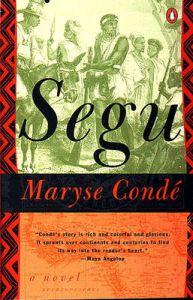
"Cond 's story is rich and colorful and glorious. It sprawls over continents and centuries to find its way into the reader's heart." --Maya Angelou "A wondrous novel" (The New York Times) by the winner of the 2018 New Academy Prize (The Alternative Nobel prize in literature) and author of The Gospel According to the New World The year is 1797, and the kingdom of Segu is flourishing, fed by the wealth of its noblemen and the power of its warriors. The people of Segu, the Bambara, are guided by their griots and priests; their lives are ruled by the elements. But even their soothsayers can only hint at the changes to come, for the battle of the soul of Africa has begun. From the east comes a new religion, Islam, and from the West, the slave trade. Segu follows the life of Dousika Traore, the king's most trusted advisor, and his four sons, whose fates embody the forces...
Visa mer
Recensioner
Betyg 
Det finns olika anledningar till varför jag väljer att läsa vissa böcker. Just denna afrikanska släktkrönika valde jag att läsa därför att jag har ett barnbarn med en Gambiansk pappa. Hälften av hennes ursprung är sprunget ur gener från västafrika. Jag visste att jag hade bristande kunskaper om västafrikansk kultur och historia när jag började läsa. Jag läste boken långsamt eftersom det var många afrikanska namn och männen, som boken företrädesvis handlar om, har flera fruar och bihustrur så det blir många söner att hålla reda på. Inte blev det lättare när islam tvingade bort den inhemska religionen och en del karaktärer fick nya muslimska namn. Berättelsen känns oerhört realistisk och ger verkligen insikter i vad som föregått dagens västafrika. En stark och intressant läsupplevelse och en författare jag definitivt kommer att läsa mer av.
2009-09-26
Betyg 
Den tog sin tid att läsa, men jag tyckte att den gav väldigt mycket. jag fick en större förståelse av Afrika av idag.




